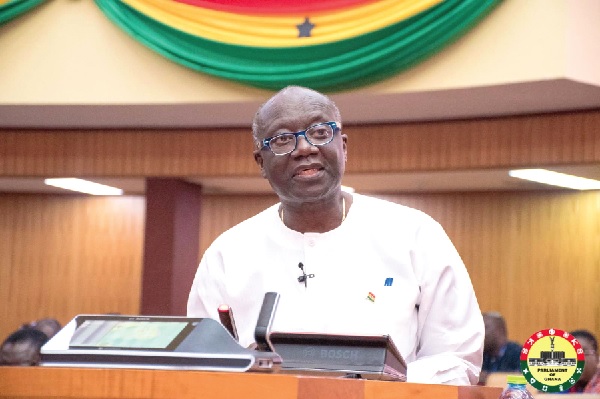
Expert advocates pragmatic means to widen tax net
A finance and economics expert wants government to device a more pragmatic and aggressive approach to widen the tax net to capture those out of the tax bracket.
Professor Godfred Bokpin was of the view that increasing taxes to burden the few already in the net instead of targeting those not in the system was a huge disincentive and would result in evasion and avoidance.
“We have a 14 million tax paying population but less than three million are paying direct income tax and a huge chunk are not paying. It means we are not growing a taxable economy,” Professor Bokpin said when he made an appearance on the Graphic Business X dialogue series to react to the 2024 Budget Statement and Government Economic Policy laid before Parliament last Wednesday.
Over the years, governments have failed to widen the tax net to capture in particular, many of the eligible taxpayers mostly found in the informal sector of the economy to honour their obligations to the state.
Ghana lags behind its peers when it comes to tax to Gross Domestic Product (GDP). While Ghana is doing less than 14 per cent, the continental average is between 18 and 20 per cent.
Studies have shown that, unlike Ghana, those countries have been able to reach that height because of an efficient tax system that goes a long way to encourage compliance while those in the informal sector for instance are compelled to pay or face the penalties thereof when they default.
In the case of Ghana, governments have consistently paid lip service to the charge but are therefore quick to target those already in the tax net, thereby broadening them. Such practice have forced some of them to employ the services of tax professionals to help them to avoid the tax.
Professor Bokpin attributed the inability of the government to touch base with those in the informal sector to collect taxes and create a mechanism where they could be captured in the tax bracket as laziness and demanded for the practice to change.
To him, government’s penchant to rely on tax handles to indirectly collect taxes for those it could reach directly impeded the realisation of the long cliché of widening the tax net.
Hard work
Professor Bokpin noted that to widen the tax net required hard work and discipline, adding that the government must be prepared to adopt the right approach to ensure that the informal sector does not escape the net, particularly at this time when government is in dire need of financial resources to accelerate development.
“Ghana has become like a spoilt child that lacks discipline and always wants the soft way. Ghana needs discipline - not money - to be able to actualise it development agenda,” he stated.
Tax to GDP ratio
Finance Minister, Ken Ofori-Atta, in laying the 2024 budget, said government’s approach to tax policy since 2017 was to give significant relief to the private sector until expenditure pressures from 2020 required a more aggressive approach.
He admitted to the fact that in the short-term, fiscal sustainability required an improvement in tax ratios significantly.
He referenced the country's 13 per cent tax-to-GDP ratio and indicated that, the rate was far below Ghana’s peers, hence its target of 18-20 per cent must be met and the government was on course.
In that regard, he admitted saying it was difficult to implement all the structural reforms and tax reliefs needed to immediately lower and/or eliminate certain tax handles.
Although he gave an assurance to reach its projected target, he indicated that the government was working with the GRA to achieve that objective but he fell short of outlining the strategies to achieve that and the target this time around.
Professor Bokpin in his response, outrightly dismissed the notion that Ghana’s low tax to GDP ratio was inimical to it development, saying countries such as Malaysia and Singapore didn’t have exceptional tax to GDP ratio but they were thriving.
“Ghana’s lack of development is not low tax to GDP ratio, it is the issue of governance and its failures that manifest in finance and other sectors,” he stated.
Procurement infractions
The Professor of Finance also raised concerns about the country’s porous procurement processes which gave room for massive leakages.
For instance, he chastised the sole sourcing approach used on majority of state contracts and the centralised procurement format that government undertakes with regard to government contracts, saying that was not the way to go.
Ghana is said to lose about $3 billion annually through procurement infractions, an amount the government is presently seeking from the International Monetary Fund (IMF) in the next three years.
Referring to the sole sourcing method adopted by the government, Professor Bokpin said “This breeds corruption because according to the stats, not less than three billion dollars is lost through corruption annually and we are at the IMF begging for a three billion dollar loan?” he queried.
He called for a comprehensive review of Ghana’s procurement system to make it efficient and corrupt free for the benefit of the society.